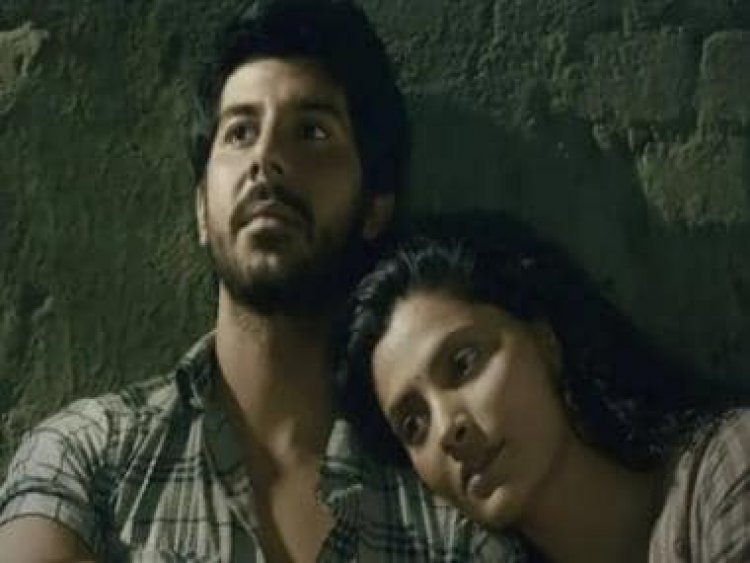Faadu A Love Story review: Pavail Gulati & Saiyami Kher's excellent performances save a slow and ponderous series
Faadu A Love Story review: Pavail Gulati & Saiyami Kher's excellent performances save a slow and ponderous series

In a scene from SonyLiv’s Faadu: A Love Story, a young couple cautiously spar over the phone. “Abhi bhi darr lagra hai toh you can change your mind,” the woman says. “I’ll change my life”, he responds, in the wake of naïve bet of which he doesn’t even hold half the cards. This shallow poeticism that often punctures the screen with regularity is the undoing of a series that plods, drags and ponders far too much about what it wants to be. Highlighted as a love story, Faadu begins well, reeks of promise and even touches a few high notes of visual and aural brilliance. In terms of narrative direction, however, it is far too unsure and cumbersome for its own good.
Pavail Gulati plays Abhay Dubey, a slum-dweller from Mumbai who is aspirational beyond his intelligence. His introduction, in fact, is supported by a monologue that basically overstates his ambition. i.e. he isn’t the kind to do it by the book, even though he might be good enough to write one himself. Gulati is compelling and seamlessly embodies the sprightly underdog spirit of a man who is so tired of feeling broken, he can’t help but be bullish about where life takes him from here. Abhay meets Manjiri, played by a mesmerising Saiyami Kher, a literature student who also brings a migrant perspective to the story of a couple of Mumbai in-breds. Abhay is the son of a rickshaw driver, an ailing mother and an alcoholic brother in Roxy, played by an excellent Abhilash Thapliyal.
Mumbai’s slums, ungainly yards of filth are lit up arrestingly in this story of dogged despair. As a love story between a woman who wishes to read poetry in everything and someone can’t help but accept the prosaic nature of life, on paper, Faadu oozes promise. Unfortunately, though, it’s on paper, really that the series seems to have undone itself. For one thing, it takes farcically too long to get moving. It’s also somewhat thwarted by truly bizarre dissonance. Abhay, for example, is simultaneously the most confident and yet under-confident man around. He deals in wild poetic rhetoric but rarely backs it up with equally impressive interventions. In one scene, for example, he explains why a certain lottery number would be picked in the local pot and it is all grossly underwhelming.
This could of course be the show’s way of telling us that this is a person with the kind of morbid self-belief that can only lead you to a path of self-destruction. None of it, however, is done convincingly. Abhay’s blind confidence in things that he can’t even control is a form of despair, but it is often oversold as his charisma. It’s also, at times, rather oddly read as poetry. His poverty, Manjiri tells him one awkward sequence, is the ‘best poetry’ she has ever heard. She also writes baffling letters back home to her father in the village (who also happens to be a poetry lover) where she talks about love, sex and murder like it weren’t addressed to an Indian household. Then there is the structural dissonance where both Abhay and Manjiri are at one point struggling to put together 250 rupees for a book she needs and are in the next scene studying tid-bits about a businessman on a laptop.
The acting performances are good enough to make you wish for better plotlines and possibly a more coherent sense of direction and purpose. This is after all a moody story about the tragedy, of the past stumbling past the present to become the future, but it is somewhat undone by the absurdity of the many turns the narrative takes without anything remotely close to conviction. The middle feels especially draggy, moodily sneaking up on a point before drifting away like thin, unnoticeable air. Everyone’s committed here, including Thapliyal’s scene-stealing alcoholic older brother but frankly, some excellent sound and visual design notwithstanding, the writing fails to support the talent; eventually writing itself into a maze of euphoric potential and frustratingly poor writing that helps no one.
Faadu ably channels the rage of the underprivileged, their sobriety in the face of the world’s drunkenness but where it lacks especially, is in keeping its head about one thing or the other. It meanders between genres, never quite comfortable occupying either. From benevolent dons to ideas that don’t really sound like strategies, the series also feels woefully undercooked in the details and dizzyingly stretched to within an inch of unravelling, in its entirety. At eleven episodes, it is far too long and indulgent, as opposed to lithe and cohesive. Less, especially in this case, feels like it could have been more.
Faadu is streaming on SonyLIV
Manik Sharma writes on art and culture, cinema, books, and everything in between.
Read all the Latest News, Trending News, Cricket News, Bollywood News, India News and Entertainment News here. Follow us on Facebook, Twitter and Instagram.
What's Your Reaction?



























































